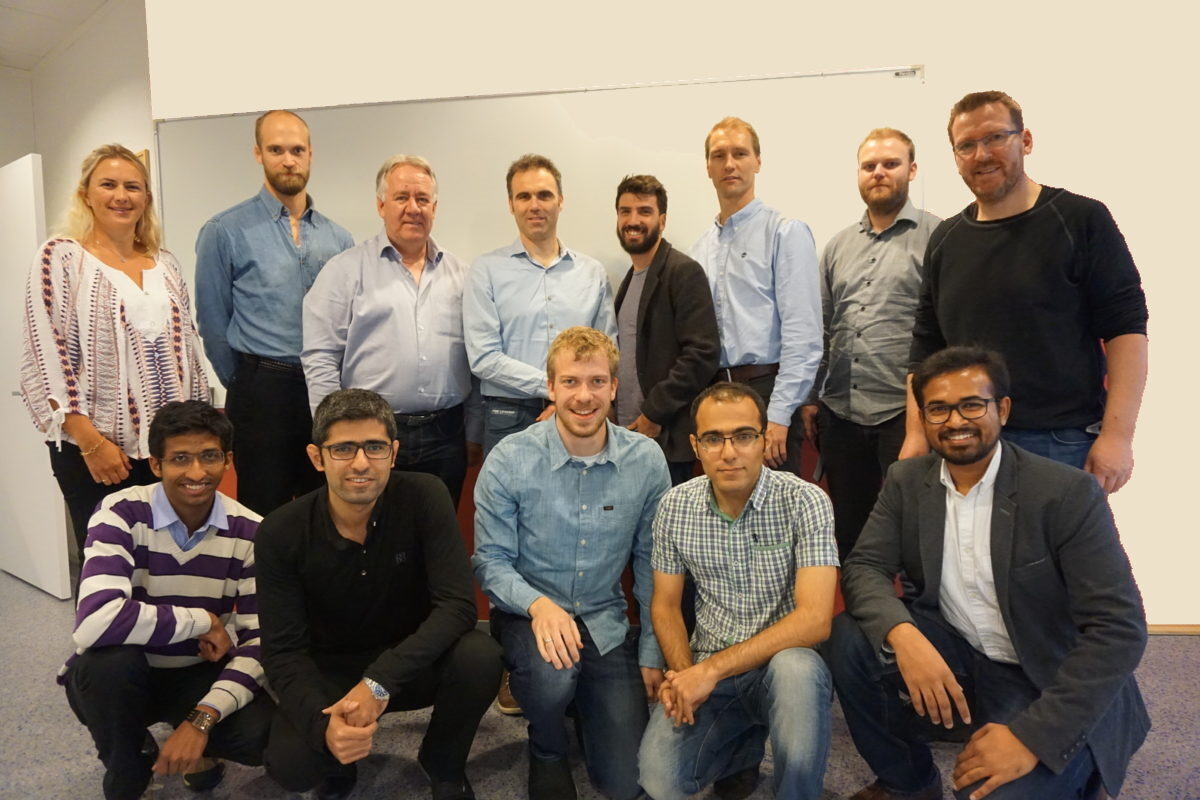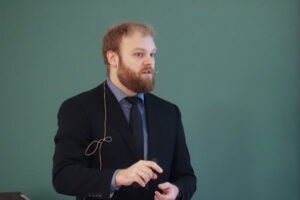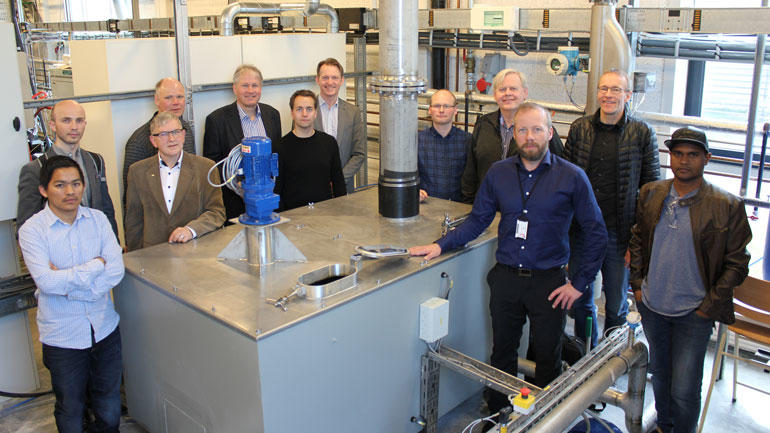Our mission in Kelda is to improve efficiency and safety of drilling operations through intelligent automation using advanced control/machine learning, sensor fusion, hydraulics modelling and drilling expertise. A vital part is the continuous development of key competence to keep us at the forefront of the research in each of these areas. We achieve this by close collaboration with both local and international universities through a number of PhD projects. Last year, we came to the conclusion of three academic research projects on hydraulics modelling and sensor technology, resulting in the defence of all-together 10 PhDs by end of 2020.
PROJECT 1: In-house industrial PhD on influx modelling”
The first one of these projects has been an internal research project on multiphase modelling for enhanced influx management, which to some degree has served to coordinate the research of the two other larger PhD projects (described below).
The project was an industrial PhD scholarship for our leading specialist on hydraulics modelling, funded in parts by the Norwegian Research Council (NRC).
- PhD #1: Christian Berg – Modelling for automatic control and estimation of influx and loss during drilling operations
PROJECT 2: “HYDRA – HYdraulics modelling for DRilling Automation”
This has been an EU-funded industrial PhD research project which has been a collaboration between Eindhoven Technical University (TU/e), Mines Paristech and Kelda. The project was dedicated to solving particular challenges related to model-order reduction and numerical solutions to enable more efficient mathematical models for multiphase hydraulics in drilling.
For the duration of the 4-years, the PhD candidates spent two periods of 12 months and 6 months, respectively, with Kelda’s R&D team in Norway.
- PhD #2: Mohammad Abbasi – Modeling and Order Reduction for Hydraulics Simulation in Managed Pressure Drilling
- PhD #3: Sajad Naderi Lordejani – Model reduction for infinite-dimensional systems, with application to managed pressure drilling
- PhD #4: Naveen Velmurugan – Distributed dynamics of influx during MPD operations; modelling and estimation
- PhD #5: Harshit Bansal – Structure-preserving model order reduction for drilling automation

From an early kick-off meeting of the HYDRA project in Porsgrunn, Norway: B.L: Linn, Ulf Jacob Aarsnes (IRIS), Prof. Will Schilders (TU/e), Prof. Nathan Van der Wouw (TU/e), Prof. Florent Di Meglio (Mines ParisTech), Glenn-Ole, Christian and Geir Arne. F.L: Harshit Bansal (TU/e), Mohammad Hossein Abbasi (TU/e), Jon Åge, Sajad Naderi Lordejani (TU/e) and Naveen Velmurugan (Mines ParisTech).
PROJECT 3: “Semi-KIDD – Sensors and models for improved kick/loss detection in drilling”
The final project concluded this year is a research project proposed by Kelda to solve key challenges related to new sensor technology and modelling of return flow measurements in drilling. The project was funded by the Research Council of Norway’s PETROMAKS 2 programme and Equinor, which has been run by the University of South-East Norway (USN) in collaboration with the Norwegian University of Science and Technology (NTNU), Kelda, MHWirth, Cybernetic Drilling Technologies, Sencor-Tecnology, and Norwegian Research Centre AS (NORCE).
- PhD #6: Prasanna Welahettige: Transient drilling fluid flow in Venturi channels: comparing 3D and 1D models to experimental data
- PhD #7: Khim Chhantyal – Sensor Data Fusion based Modelling of Drilling Fluid Return Flow through Open Channels
- PhD #8: Asanthi Jinasena: Models and Estimators for Flow of Topside Drilling Fluid
- PhD #9: Haavard Holta – Kick & loss detection and estimation using distributed models
- PhD #10: Morten Hansen Jondahl – Data-driven Models for Estimation of Drilling Fluid Rheological Properties and Flow Rate

